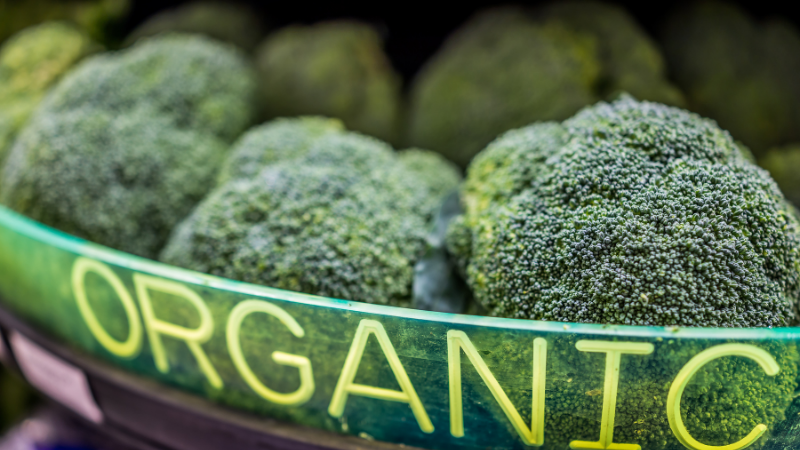What Are the Best Sulfur Fertilizers for Organic Crops?

Sulfur is an essential macronutrient required by all crops – especially those with a high sulfur demand: such as corn, oilseeds, alfalfa, legumes, sorghum, and crucifers. But with synthetic fertilizers such as ammonium sulfate (AMS), potassium sulfate, and ammonium thiosulfate off-limits, what sulfur fertilizers are best for use in organic crop production?
Fortunately, there are a number of OMRI-listed sulfur fertilizers available for use in organic systems. All are available in a variety of packaging configurations to serve the needs of greenhouse and field-cropping applications.
Bentonite sulfur fertilizers (elemental sulfur)
You won’t find a more economical, higher analysis, season-long source of sulfur for agricultural use. Its two primary ingredients are organic: elemental sulfur and bentonite clay. In most cases, the only additional requirement necessary to achieve OMRI certification is the use of an organic dust-suppressant.
Bentonite sulfur provides season long, slow release sulfur nutrient to the crop. Generally 30%-40% is converted to sulfate over the growing season.
Plant availability can be accelerated somewhat through a fall-application. The winter free/thaw cycle will help disintegrate the pastilles into smaller sulfur particles, for quicker breakdown in the spring, once the soil microbes ‘awake’ from dormancy.
With bentonite sulfur, it is wise to choose an established manufacturer with a proven track record. Bentonite sulfurs made with premium clays and manufacturing processes will offer significantly superior performance. Clay is an invaluable dispersal mechanism. When a good quality clay is activated by moisture, it fractures pastilles into smaller sulfur particles, thereby increasing surface area available for oxidation.
A premium clay will cause the sulfur to degrade into much finer particles (under 200 microns) for faster, more complete, more consistent conversion to sulfate. This ensures crops get the maximum nutritional benefit. Products made with enhanced dust control measures will be safer and cleaner to handle.
Sulfur analysis: 90% or 85%
Application options: Broadcast (preferred), seed row, banded
Advantages:
- Highest sulfur analysis, season-long sulfur source
- The slow-release mechanism minimizes the risk of leaching
- High analysis, season-long requires fewer passes
- Can be used for soil amendment program to lower pH
Sulfate of Potash (SOP) and Gypsum
Gypsum has been used to improve soil quality for over 250 years. It contains approximately 17% sulfur – as readily available sulfate. SOP and gypsum are commonly used as sulfur sources, only where soils or cropping call for it.
Sulfur analysis: ≈17%
Advantages:
- Immediately plant available
- Affordable sulfur source
- Source of calcium
- Soil amendment to increase organic content
Choosing the right solution
Back to our question: which organic sulfur source is best for your crop? There are a number of factors to consider. Is your soil sulfur deficient – and to what extent? What crops are you growing? How will you be applying the fertilizer and when? Do you want an immediately plant-available fertilizer, a slow-release product or both.
The best place to start is to speak with your fertilizer retailer or agronomist. If you’re not sure about the sulfur content across your fields, soil testing is highly recommended.
As an organic grower, or business serving organic customers, take the time to see if the fertilizer manufacturer’s commitment to responsibly-produced products and core values that align with your own. By considering all of these factors you’re sure to make a decision that’s right for your crops, and the environment.




